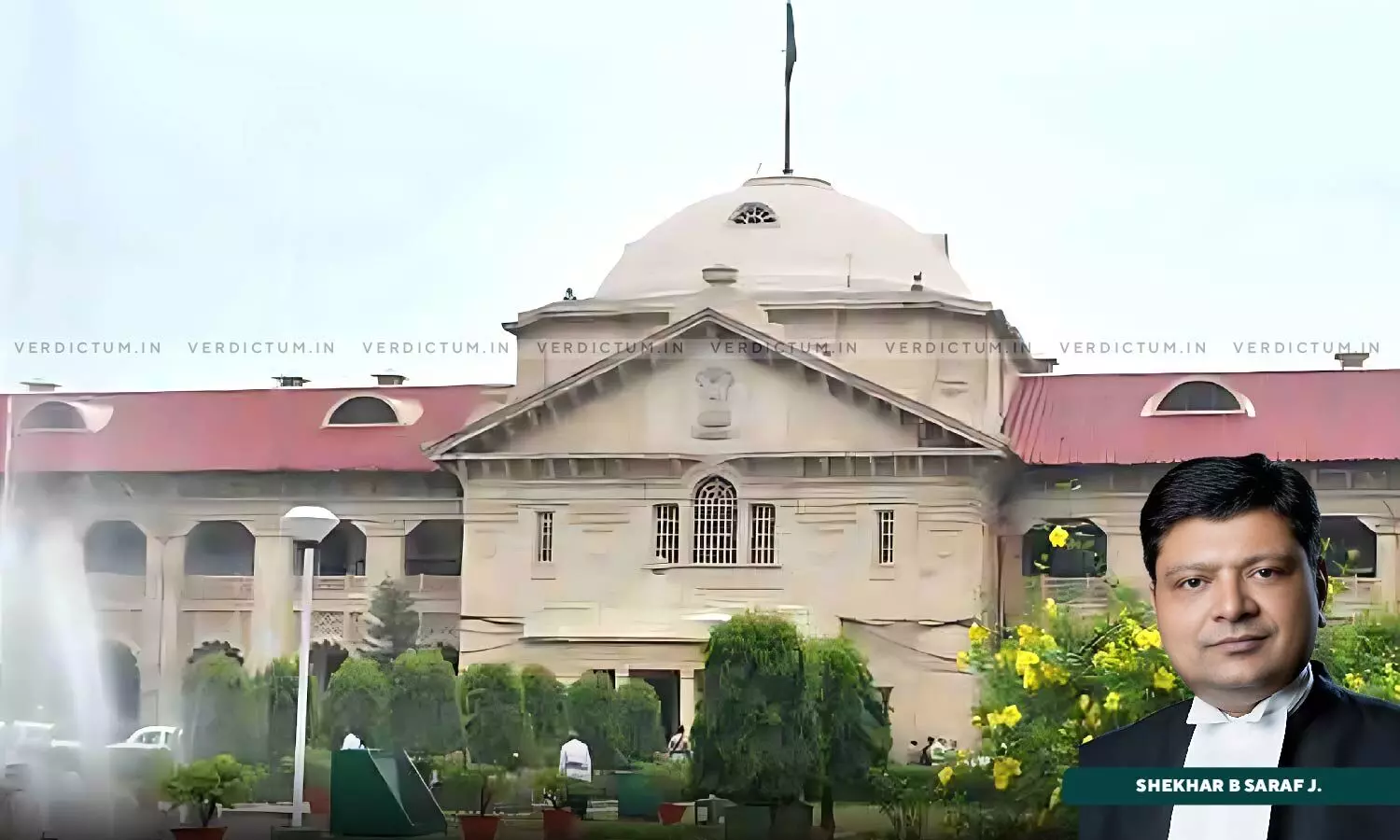
Judgment Delivered Earlier To Be Followed In Case of Conflicting Judgments Of Coequal Benches: Allahabad HC
 |
|The Allahabad High Court observed that when a bench of coequal strength is faced with conflicting judgments of other coequal benches, the judgment delivered earlier will continue to govern the field of law, till such time, the same is overturned or in case the question(s) of law, if referred to the larger bench is answered.
Applications were filed by two companies under Section 29A(4) of the Arbitration and Conciliation Act, seeking an extension of the mandate of the arbitral tribunal. The Court was informed during the hearing on May 7 that a larger bench reference on the interpretation of the term 'Court' under Section 29A of the Act was pending in the case of M/S Jaypee Infratech Limited v. M/S Ehbh Services Pvt. Limited (2024).
A Bench of Justice Shekhar B Saraf held, “When a bench of coequal strength is faced with conflicting judgments of other coequal benches, the judgment delivered earlier will continue to govern the field of law, till such time, the same is overturned or in case the question(s) of law, if referred to the larger bench is answered. This will also hold true when a lower court is faced with conflicting judgments of a higher court, or a coordinate bench is faced with conflicting judgments of a division bench.”
Drawing from established legal principles, the Court noted that the earlier decision of a coordinate bench must be followed until a decision is rendered by a larger bench. This adherence to precedent, even in the presence of conflicting judgments, maintains the integrity of the legal system and upholds the principle of stare decisis. Furthermore, it fosters certainty and predictability in the administration of justice.
The Court highlighted the potential confusion and uncertainty that can arise when conflicting precedents exist, leaving litigants unsure of their rights and obligations under the law.
The Court noted that in that case, conflicting views had been observed in decisions of two coordinate benches, prompting the Court to refer two questions for decision by a larger bench.
1) Whether in cases where the appointment of arbitrators is made by the Supreme Court or the High Court, only the respective court can hear applications under Section 29A of the Act?
2) Whether in cases where arbitrators are appointed under agreements between parties (including statutory appointments), and not by the High Court or Supreme Court, the Court as defined under Section 2(1)(e) of the Act can exercise powers under Section 29A, including the power of substitution contained in Section 29A(6) of the Act?
The Court added, “By following the earlier decision, even in the face of conflicting precedents, courts preserve the integrity of the legal system and uphold the principle of stare decisis – the notion that like cases should be decided like. From a practical standpoint, following the earlier decision until the decision of the larger bench is returned serves to promote certainty and predictability in the administration of justice. When conflicting precedents arise, uncertainty abounds, and litigants may be left in a state of limbo, unsure of their rights and obligations under the law. By adhering to the earlier decision, courts provide a measure of stability and clarity, allowing parties to proceed with confidence while awaiting resolution from the larger bench”
In the present case, the Court allowed the applications for mandate extension, relying on the precedent established in Indian Farmers Fertilizers v. M/S Manish Engineering Enterprises (2022), wherein a coordinate bench had held that applications under Section 29A were maintainable before the same court that appointed the arbitrator under Section 11 of the Act.
Cause Title: M/S Geo Miller Co. Pvt. Ltd. v. UP Jal Nigam & Ors., [2024:AHC:89303]
Appearance:
Petitioner: Advocates S.D. Singh with Shadab Alam, Sujeet Kumar, Chhaya Gupta
Respondents: Advocates Vimlesh Kumar Rai, Anand Prakash Paul
Click here to read/download Judgment